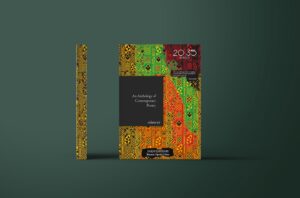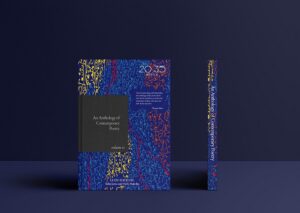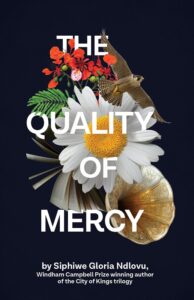Prologue
The Nuba Mountains, December 1881
Rabiha steps out of her hut, sets out to warn the Mahdi. The night is lit by a full yellow moon. She must not be seen by the soldiers surrounding the village. The governor of Fashoda is on the move, intent on annihilating the Mahdi once and for all. She must get to him first. Sounds of a shuffle, a pant: she turns to see the old hunting dog following her. She bends down, rummages on the ground, finds a mango stone, and throws it at the dog. She picks up a chewed bit of sugarcane. It is still in her hand when she reaches the outskirts of the village. The vegetation thickens and rising out of the shadows is a Shilluk warrior, posted to ensure that no one leaves the area, certainly not before the planned surprise attack against the rebels. Spear in hand, muscular torso above his loincloth, the physique of a wrestler. She stiffens, drops the bit of sugarcane. Fight or run, fight or run? She reaches for her knife. She turns so that he can see her in full. Curves, breasts, glow of shoulder, long braids. She forces her body into limpness, hangs her long neck in submission, hides her hand behind her back, palm tight over the knife. He approaches, first with caution, then the start of a swagger. Makes low soothing sounds as if she were a skittish calf, lone antelope, stray prey.
He must be near enough to scent the sandalwood she uses in her hair to drench the smell of grease; she can see the decorative row of bead-like scarring across his forehead. He drops his spear; she waits a beat and aims down at his stomach. There is hardly any sound apart from the thud of his body on the ground. She looks around, grabs his spear, and runs.
She knows this land, every path, where it is smooth and where it is rocky. She had discarded her usual layered shoes, slipped her feet in flat tanned leather, tied the strings all the way up her calves. She can move faster like this, and she needs to be fast. Needs to warn them. Herding her goats as she did every morning, she had passed the hut of the village chief and overheard the conversation. The Turkish binbashi sent by Rashid Bey, the governor, to say that the assembled force intends the village no harm, they come in peace, passing through Kinana land, and heading up the mountains where the rebels have fled. The binbashi requested volunteers from the village but sensed a reluctance. Hence the imposed curfew, the prohibition against anyone leaving, in case they alerted the rebels.
Last week the Mahdi with his community had been received warmly by Rabiha’s tribe. She had been one of the many who gathered to listen to him preach, entranced by his manners and compassionate smile, pierced by his words. She had pledged allegiance to his cause, to renounce material things and not shirk from jihad. These promises felt like a weighty responsibility she would carry forever. She was an orphan, brought up in the care of her older sister. Her father had died worn out by the tyranny of the Ottoman invaders, their cruel incessant taxes, their disregard for people’s circumstances. Rabiha remembered his anxiety the year his sugar crop failed; how could he pay what he didn’t have? Crushed by debt and made small, always.
Rabiha keeps striding, bloody knife stuffed into the wide cloth she had wrapped around her hips and thighs. The new spear in her right hand. There are poisonous snakes, and she must be careful. There are thorny bushes, scattered rocks jutting out; there could be, if she were unlucky, a lion or a hyena. She can hear their cries. All these dangers but the most pressing one is that she might not get there in time. Jebel Gadir is far away, normally a two-day journey. And she must over that distance in one night. She runs.
When she runs, she feels the amulets she is wearing bounce against her chest and biceps, sacred words in tiny leather pouches, the red tassels that tie them fluttering against her skin. The newest amulet was given to her by the Mahdi himself. Not enough that the Expected One smiled at her but to give her this special protection too! First, she had asked for amulets for her two daughters. Then she asked for one for herself. It had been a special day when he arrived, the sky soft, the world bright. Every day of his visit had been charged with a particular aura, his sermons changing the daily life of the people, stirring hopes in them. He was the one they had been expecting, he was the Guided One mentioned by the prophecies. But Rabiha’s husband had been skeptical. He was cautious by nature, and she respected him for that. But his concerns—fear of disruption, fear of change—were what they were, just fears. So, she did not tell him that she was going out tonight. He would have stopped her. Forbade her or at least dampened her resolve. And to cover all this distance, she must not be distracted, not by a marital disagreement and certainly not by lack of confidence. So, she had slipped out of their warm bed as soon as he started snoring. He would not notice her absence until dawn.
The cold breeze scalds her face and bare arm, the right one that isn’t covered by the brown muslin shawl. The breeze finds its way through to her thighs. Running is making her warm, though, and she must keep it up. To cover distance and keep warm. Searching for the flatter paths up the mountain, but perhaps there will be a delay in doing so, better take the shortcuts. Shortcuts she had taken as a child. Not for her the sitting still, clinging to her mother’s clothes. She did not remember her mother clearly. Always ill, spread out on a mat, calling out for water. Enough to break the heart or make you want to run away, up the green mountain, under the sun. Rabiha, Rabiha, it is as if she can hear her mother calling her. Feeble voice, a hint of reproach.
She feels thirsty. The sky is clear, the moon near. She can see the pockmarks on its surface, brown frizzles, unruly. No time for gazing, she must run faster. Her shawl is caught by brambles. Irritated, she yanks it away and hears it rip. Never mind. She can mend it later. When dawn breaks, her absence will be noted. But they will guess where she has gone. All day, as the news spread around the village, they had been whispering about Rashid’s impending attack. When volunteers didn’t step forward, or at least not enough of them, it had been clear that the village was sympathetic to the rebels. Rashid’s next strategy was to encircle it with warriors from the Shilluk tribe, loyal to the government, and enforce a blockade. No one allowed to leave. For the attack on the rebels to succeed, the element of surprise was essential.
Surely by now, if the man she killed had been discovered, they would have been after her. She is safe from Rashid’s men but not from the animals of the forest. Run and stay alert for the gleam of an eye, listen for a low growl. Loud are the frogs, on and on they croak, insects chirp. Pass through the forest or circle round it? The quickest route is the priority, no matter what. She has done this trip before but never so quickly, never with this much urgency, never alone or at night. The moonlight is less yellow now, more silver. On such a night, the moon overshadows the stars. She could have used them to navigate her way too. No matter, memory serves her well. She will not get lost. She must not get lost. There is no time for errors.
This is why she does not stop when she feels the sting. What sting? No, nothing. Her right heel. Must have scratched tree trunk, picked up a thorn. She is desperate to stop, sit down, cradle her foot, squint to see if there are, God forbid, two puncture wounds made by fangs. Or grope with her fingers to take the thorn out. But she cannot sit. She is halfway there. Pulling herself up on hands and balls of her feet. It could be that she had upset a nest, aroused the one animal she dare not name. ♦
River Spirit by Leila Aboulela was published on 7 March, 2023 by Saqi Books.

BUY River Spirit by Leila Aboulela.
Open Country Mag may earn an affiliate commission via Amazon.
More Book Excerpts from Open Country Mag:
— Between Starshine and Clay by Sarah Ladipo Manyika
— Black and Female by Tsitsi Dangarembga
— Sankofa by Chibundu Onuzo
— We Once Belonged to the Sea by Diriye Osman
— Biracial Britain: A Different Way of Looking at Race by Remi Adekoya
— The Fugitives by Jamal Mahjoub




